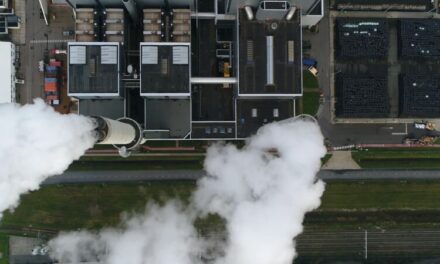 During its 40 year existence, Exeter Technical College has expanded into an array of different buildings, each with their associated specific demands and control systems.
During its 40 year existence, Exeter Technical College has expanded into an array of different buildings, each with their associated specific demands and control systems.
As part of its sustainability and corporate responsibility policies, the college was aware that it had a number of systems that were coming to the end of their practical life along with the need to save energy and carbon emissions.
It engaged Ability Controls and Energy Management to assist in looking at ways it could save energy while still ensuring it provides a comfortable working environment within the confines of its existing budgets. In addition, it also wanted to enhance the visibility of conditions, operation and coordination of the multiple installations across the college’s sites. It was crucial that communication across the sites was easy and accurate to ensure energy consumption and savings could be easily analysed.
Eighty percent of the initial works undertaken have been refurbishment, focusing on upgrading existing building energy management system (BEMS) hardware and reprogramming the controls software. Victoria House was selected as the first site to focus on due to the immediate needs of upgrading the existing BEMS and the potential energy saving opportunities.
Ability Controls and Energy Management installed Siemens Desigo PX hardware, and the existing I/O modules, wiring and field devices were retained to minimise the disruption caused and costs to the end user. As part of the works, Siemens Desigo Insight was installed to provide effective visualisation of the new refurbished plant rooms and associate areas they serve. It provides plant graphics and alarm, set point and time scheduling adjustments to enable easy monitoring and management of the plant rooms, while also allowing expansion to cover proposed future works on campus.
This initial installation required some reallocation of funds within the existing budget, but soon proved its worth in the reduction of gas used on-site. Subsequent evaluation of the meter reading before and after the installation showed a 40% reduction in gas used which equates to a 2.4 year payback on investment. The evidence of tangible savings validated the college’s initial calculations and has allowed more funds to be moved for a site wide programme of upgrade and refurbishments in addition to standardisation of this solution for new builds.
Because of the initial success of the project, the decision was made to incorporate the Centre of Creative Industries (CCI), a separate part of the campus, onto the new system. As the installation was across the campus, the IP network on both sites was used to provide the communication between the BEMS and PC front end.
 The multiple buildings across the sites have various numbers of modular and compact PX outstations installed and communicate across the site IP. The outstations employ BACnet as their native communications protocol to ensure open communication and future proofing. Detailed discussions with the site’s IT team took place to make sure it would comply with its IT policies and not interfere with other software applications it was running.
The multiple buildings across the sites have various numbers of modular and compact PX outstations installed and communicate across the site IP. The outstations employ BACnet as their native communications protocol to ensure open communication and future proofing. Detailed discussions with the site’s IT team took place to make sure it would comply with its IT policies and not interfere with other software applications it was running.
To ensure efficiencies across the sites, the college has decided to standardise all its systems to Siemens, but where it is installed, wherever possible the existing wiring from the original installation has been re-used to minimise the disruptive impact on the busy site and keep costs down.
In addition to Desigo PX hardware, the refurbishment has seen RXL terminal unit controllers installed in various areas across the sites. The RXL controllers are eu.bac certified ensuring the highest level of energy efficient operation and control accuracy. They are connected to the front end software graphics to give a clear overview of each fan coil unit (FCU) being controlled and the conditions maintained. They have been configured in accordance with the BS EN15232 standard for maximum energy efficiency, where the main plant is scheduled on an individual demand-based philosophy.
The refurbishment has also included the integration of the existing local AC units across the sites into the BEMS. This enables the college’s site team to properly schedule the use of these systems and ensure they are switched off when not required, while also working in conjunction with the other types of plant installed in the space.
As part of the upgrades, several members of staff were trained to use the system. The team has implemented a number of simple actions, including set point optimisation with high and low limits, plant alarm handling, history logging and time scheduling to ensure the plant only runs when it is needed and does so as efficiently as possible.
Steve Strang, head of Estates for Exeter College, commented, “The refurbishment programme across our sites has been very successful. We needed a system which could easily show how much energy the sites were consuming and where. By having an accurate picture of the energy used across all our buildings and sites, it is much easier to ascertain where measures can be implemented to achieve savings.
 “It was crucial that we were involved in the discussions on this project from the outset. By working in close partnership with the installers, we could ensure we were all clear on the outcomes and they have provided an invaluable on-site service regime to ensure the system is running efficiently at all times.
“It was crucial that we were involved in the discussions on this project from the outset. By working in close partnership with the installers, we could ensure we were all clear on the outcomes and they have provided an invaluable on-site service regime to ensure the system is running efficiently at all times.
“Finally, as a busy college, it is crucial we provide comfortable working environments for all our students, staff and visitors and any disruption is kept to a minimum. As such, the upgrade to the plant rooms has also been essential in providing a pleasant working environment for any staff operating in the rooms.”
The success of the project led to it winning the Energy Management award at the 2012 BCIA Awards. The award is given to a manufacturer and/or system house in recognition of the positive contribution that a building management system is providing (actual or projected) to the energy efficiency of a building and/or building complex.



